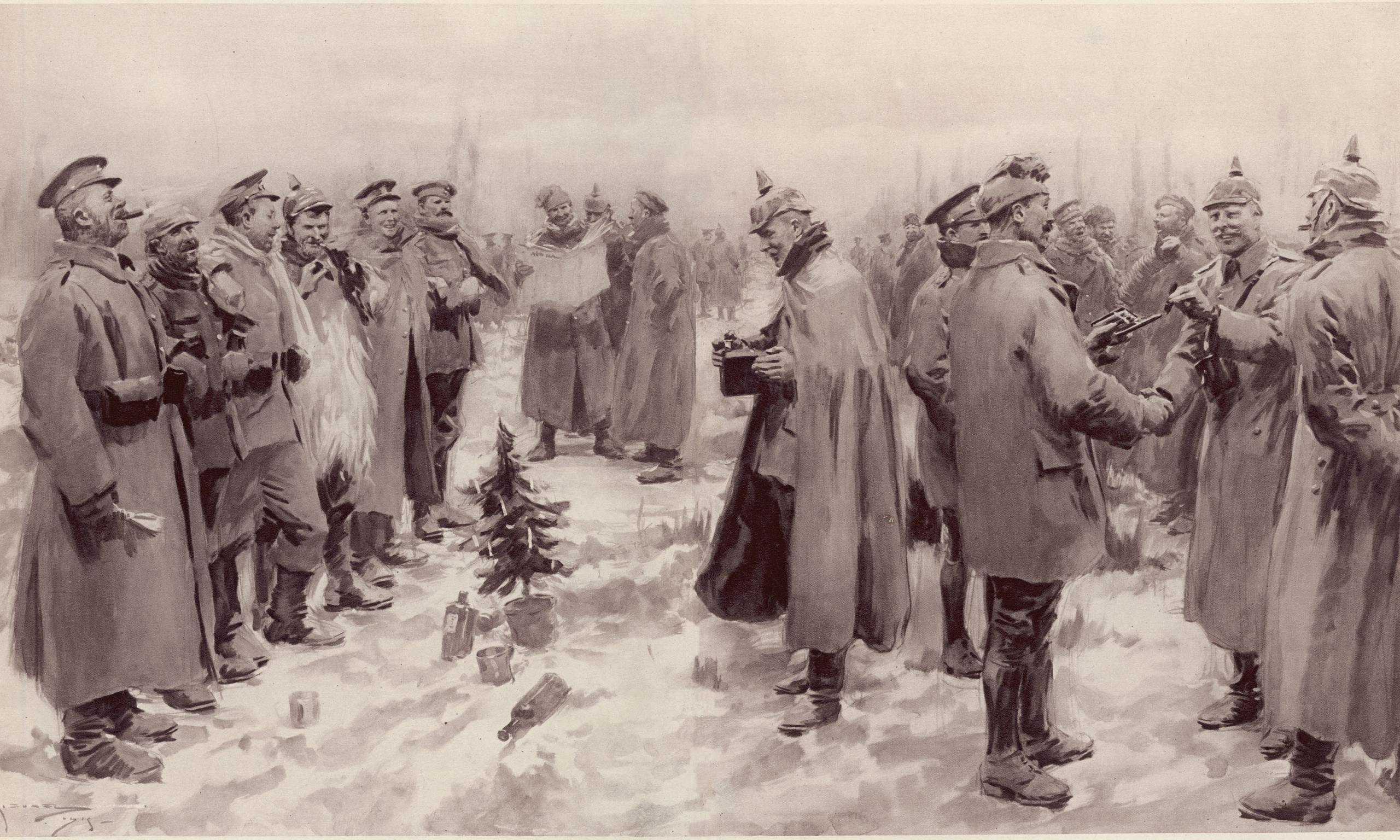The first book coming up in our KHC discussion series on January 10 is “War Horse” by Michael Morpurgo. This novel was inspired by the million British horses that were sent to the trenches of World War 1. One episode in the book portrays the horse Joey being caught in barbed wire in the no-man land between the trenches. Both British and German soldiers called a brief truce to venture out and work together to release the horse.
This story is reminiscent of the well known 1914 Christmas truce. There are many oral histories, diary entries, and letters sent home which describe truces that happened all along the Western front that Christmas. The differing accounts make it virtually impossible to speak of a “typical” or “universal” truce. Historians still can’t agree over the specifics. No one knows where it began or how it spread or if it miraculously broke out simultaneously, but about 100,000 people probably participated in the truce.
Most recall that the truce began with singing carols on Christmas Eve. Graham Williams of the Fifth London Rifle Brigade described it this way: “First the Germans would sing one of their carols and then we would sing one of ours, until when we started up ‘O Come, All Ye Faithful’ the Germans immediately joined in singing the same hymn to the Latin words ‘Adeste fideles’. And I thought, well, this is really a most extraordinary thing – two nations both singing the same carol in the middle of a war.”
The next day, both German and British soldiers cautiously emerged from their trenches with Christmas greetings which led to exchanging gifts of cigarettes, food, buttons and hats. Other stories include sharing a pig roast and having informal games of kick ball. This Christmas truce also allowed both sides to finally bury their dead comrades, whose bodies had lain for weeks on “no man’s land”.
But this was only a truce, not peace. The war resumed along the front either later that day or variously on the days up until New Year’s Day. One veteran from the Fifth Battalion, Alfred Anderson, later recalled, “It was a short peace in a terrible war.”
This break in the fighting may have been a welcome relief for the men, but officers on both sides thought differently. They believed that stories of the Christmas truce posed a threat to the resolve and morale of their soldiers who could decide that they were not fighting the same war as their superiors. Adolf Hitler, then a Corporal of the 16th Bavarians, said: “Such a thing should not happen in wartime.” He is said to have remarked, “Have you no German sense of honor.” The men were ordered to not have any fraternization with the enemy, and in the coming years there were other small truces, but none like the Christmas of 1914.
Remembering back to that truce in 1930, one British soldier, Murdock M. Wood, said: “I then came to the conclusion that I have held very firmly ever since, that if we had been left to ourselves there would never have been another shot fired.” But that was the direction history would take. The Great War would continue for nearly four more years resulting in the deaths of nearly 10 million soldiers.

